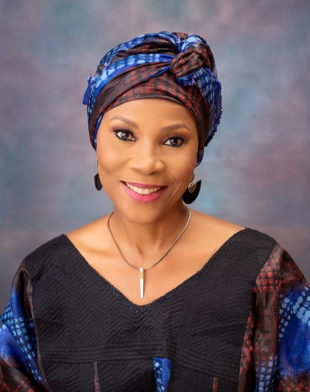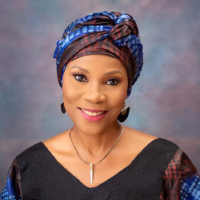In a world increasingly fractured by conflict and uncertainty, the relationship between Japan and Africa stands out for a simple reason: It is anchored in trust, partnership and built for the long haul.

As youth, leaders, partners and others capable of making changes gather for the ninth Tokyo International Conference on African Development this month, we are reminded that partnership is not about proximity; it is about shared purpose. Nowhere is this more evident than in the enduring relationship between Africa and Japan.
TICAD’s bold, forward-thinking and cooperative trajectory has stood for more than 30 years as a pillar of Japan’s commitment to Africa’s future. But TICAD 9 signals more than continuity — it marks a shift in how we collaborate. The theme of this year’s conference, “Co-Create Innovative Solutions With Africa,” points to a new generation of cooperation — one where African agency, innovation and youth leadership drive the agenda.
This is not just semantics. It is a seismic shift in mindset. It is not about including Africa at the table, it is about reshaping the table itself. And at the center of this transformation are Africa’s young people: the doers, disruptors and solvers. They are the designers of the continent’s present, and its future.
Their ideas, energy and ambition are already reshaping sectors from tech to agriculture, education to green energy. What they need now are the tools, platforms and partnerships to scale their impact.
Too often, summits speak about African youth. TICAD 9 dares to speak with them.
Through initiatives like the African Business Education, the timbuktoo Creatives Lab, which is building the innovation ecosystem in Africa, and the newly launched Africa Youth Program 2025, we see a growing commitment to investing in the right tools. These include entrepreneurial skills, digital infrastructure and intercultural collaboration. These are the scaffolding of co-creation — solutions designed not for, but with or by young people.
This commitment will be brought to life during the TICAD 9 Model African Union conference that is co-organized by the UNDP, the Japan International Cooperation Agency and Sophia University. Inspired by the Swahili word inayojumuisha, which means inclusion, nearly 200 young people from 54 African countries and 26 Japanese prefectures will debate real policy issues with the urgency they demand. This is not role-play — this is rehearsal for reality. They are not preparing for the world ahead, they are shaping it. And this is a signal of what inclusive leadership and shared innovation between Africa and Japan can look like in action.
Likewise, the inaugural Youth TICAD 2025 will bring together up to 100 activists from Africa and Japan to Yokohama for three days of immersive programming under the theme of “Co-Creating the Future We Want for 2055.” Through co-creation workshops, field visits and a project-pitching session, participants will develop real-world solutions grounded in shared vision and action.
Designed as a platform for both dialogue and delivery, this initiative is shifting from “programs for youth” to “solutions with youth.” And the distinction matters.
In Ghana, we are seeing youth build climate-resilient agriculture startups using drones and artificial intelligence. In Niger, young entrepreneurs are bringing solar-powered solutions to off-grid villages. In Kenya, students are prototyping health technology in partnership with Japanese innovators. These are not isolated stories. They are the early chapters of a different development model — one powered by agency, not aid.
Japan understands this. Its investments in education, innovation and entrepreneurship reflect a belief in long-term transformation, not transactional partnerships. But more is needed. The future will not be co-created in conference halls. It will depend on how we invest in the ideas of a 19-year-old coder in Lagos, a young policy scholar in Kigali or a social entrepreneur in Dakar. We need to go further:
• Finance must move at the speed of innovation. Youth-led ventures need capital with fewer strings and more trust.
• Policy must reward risk. Regulation should enable startups to experiment, not suffocate them before they scale.
• Education must adapt. A young person entering school today will graduate into a job market that doesn’t yet exist. We must teach adaptability, not just arithmetic.
What TICAD 9 offers is a rare and radical opportunity to put youth-led co-creation at the heart of diplomacy and development. This is not just in Africa’s interest. It is in Japan’s and the world’s strategic interest. Africa’s youth is the future of humanity’s labor force.
The spirit of co-creation is not a slogan. It is a strategy for building resilient, inclusive and sustainable societies. And it begins with the youth who will lead them.
Because in a world grappling with climate disruption, rising inequality and geopolitical tension, the solutions we need most will not come from boardrooms alone. They will come from bold ideas forged in unlikely places like a tech lab in Dar El Salam, Egypt, a classroom in Sendai or a dialogue circle in Bamako.
Are we prepared to listen — truly listen — to those whose futures are at stake?
At TICAD 9, we have the chance to show that we are. To go beyond promises. To match ambition with investment. To move from imagination to implementation.
Not just to reimagine the world we want, but to create it together.



